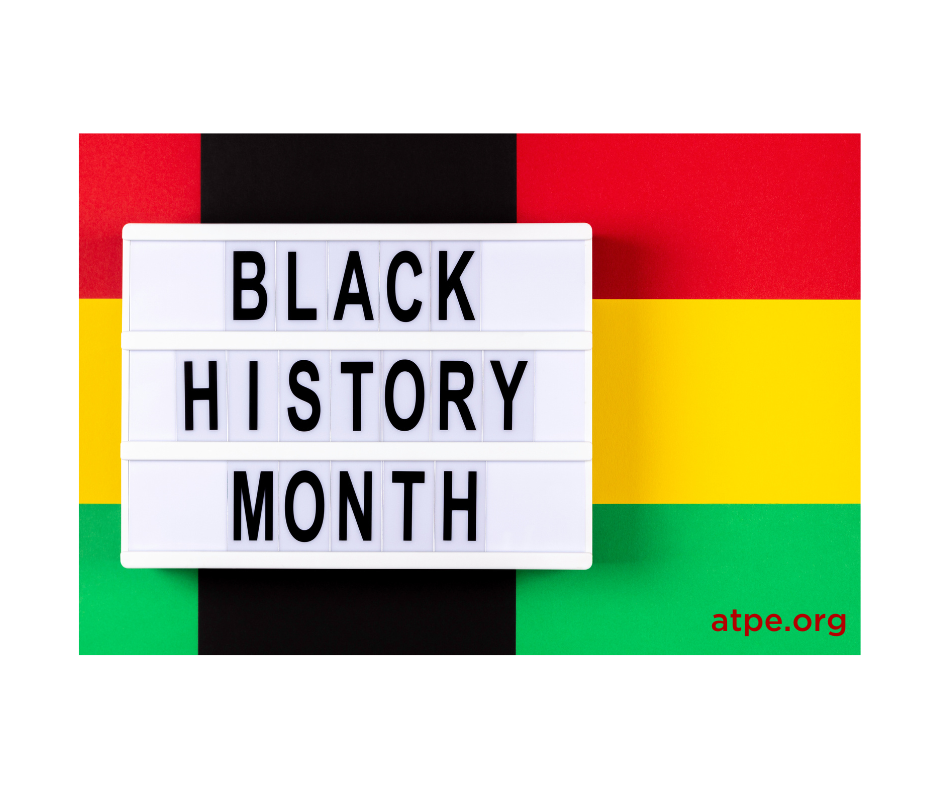Celebrate Black History Month by Honoring Influential Black Educators with Your Students

Date Posted: 2/02/2023
The U.S. observes Black History Month every February to celebrate the extensive contributions and accomplishments of the Black community and honor the many adversities and triumphs it has experienced throughout history.
This year, in addition to providing links to Black History Month resources for your classroom, we highlight three Black educators who inspired generations of youth, promoted learning equality, and helped reshape our nation’s education system.
Booker T. Washington

Born in 1856 to an enslaved Black mother and an unknown white father, Washington grew up in poverty with no formal education. After his family was freed from slavery, Washington began working as a salt packer, and during this time, he studied hard to educate himself. In 1872, his efforts culminated in a chance to attend the Hampton Normal Agricultural Institute for freed slaves. There, Washington was profoundly influenced by his mentor and the school headmaster, Samuel Armstrong. After graduating, Washington emerged as an educator and an influential orator. Later, Washington became the director of the Tuskegee Institute, and his famous speech regarding the Atlanta Compromise in 1895 propelled him to recognition as a national figure. His educational philosophy encouraged the Black community to seek freedom through education, and his school continues to provide opportunities for thousands of students.
Carter Woodson

Carter Woodson was an author, activist, and educator who is commonly referred to as the “Father of Black History.” Born in 1875, Woodson grew up in poverty and spent a significant amount of his youth working on a farm. Despite this adversity, Woodson studied hard to teach himself what he didn’t have the opportunity to learn in school and earned his high school diploma. He began working as a teacher and later became the principal of his alma mater. Woodson then spent years studying and teaching abroad, earning multiple degrees in literature. In 1912, he became only the second Black man to earn a doctorate from Harvard University. He then joined the university as the dean of its arts and sciences department, where he co-founded the Association for the Study of Negro Life and History. It was with this association that he initiated the annual celebration of the Negro History Week that has evolved into the month-long observance we know as Black History Month.
Charlotte Forten Grimké

Charlotte Forten Grimké was born in 1837 to a prominent abolitionist family in Philadelphia. She was a prolific writer, activist, and poet who originally taught at a grammar school and later at schools for freed slaves in South Carolina. The diaries she kept during the Civil War were widely published as a rare record of the life of a free Black woman in the antebellum North. After the war, Grimké recruited teachers for the U.S. Treasury Department in Washington, D.C., and continued to write journals detailing her life experiences. In one diary entry, Grimké coined the term "the blues" to describe a feeling of sadness, and she later noted that certain songs—especially those popular among the enslaved—were sung with a full heart and a troubled spirit. Her depiction is thought to have inspired countless songwriters and musicians in the incredibly influential “blues” genre of American music.
These resources are full of information and activities on Black history for your classroom:
- Weareteachers.com—Resources for February and Beyond
- History.com—Black History Month 2023: Facts, Origins & More
- Teachstarter.com—Meaningful Activities for Kids
- TEA.gov—Lessons and Instructional Materials for Your Classroom

